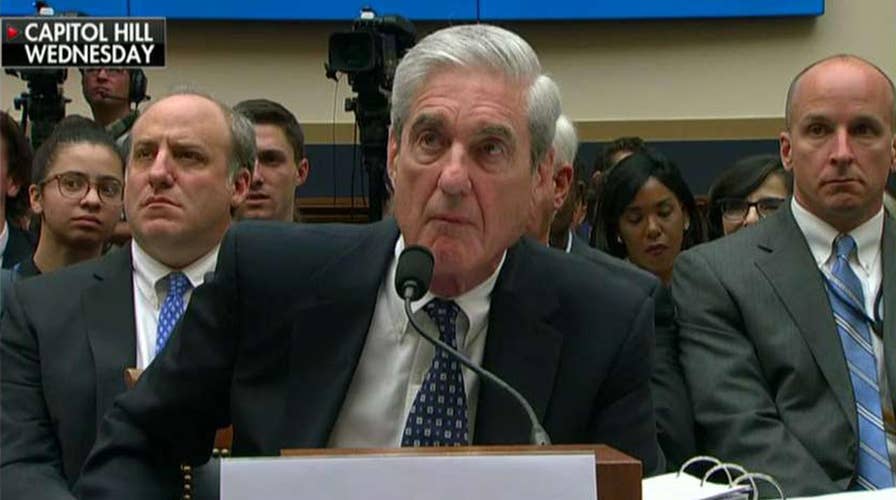Liberal media meltdown after underwhelming Mueller hearing
Reaction and analysis from The Hill media reporter Joe Concha and Fox News contributors Doug Schoen and Charles Hurt.
Robert Mueller’s congressional testimony was such a bumbling fiasco that it was easy for a viewer to be confused — and stay that way — about the main bone of Democratic contention regarding his report: the "OLC guidance" that prevents the Justice Department from charging a president with crimes while he is in office.
Specifically, how did it factor into the special counsel’s decision — or, rather, non-decision — on the main question he was appointed to answer: Did President Trump obstruct justice? How did the special counsel’s dubious reliance on it as a rationale for abdicating on this question affect the publication and ramifications of the Mueller report?
We’ve plowed this ground before, but it is worth revisiting.
GIULIANI ON MUELLER AFTERMATH: 'DEMOCRATS ARE NOW MAKING TOTAL CLOWNS OUT OF THEMSELVES'
The OLC Guidance
The OLC is the Office of Legal Counsel, the lawyers’ lawyers in the Justice Department who formulate policies that guide federal prosecutors throughout the United States. The OLC guidance at issue in the Mueller investigation is the prohibition on indicting a sitting president. This rule is said to be derived from constitutional and prudential considerations.
CLICK HERE TO GET THE FOX NEWS APP
I do not believe the guidance is sound. But that’s beside the point: The guidance is binding on Justice Department lawyers, period. That means it is also binding on special counsels. By regulation, they are firmly in the Justice Department chain of command.
Consequently, the OLC guidance applied to Mueller’s investigation of President Trump. In particular, it was relevant to the obstruction aspect of the probe, which was always a criminal investigation. (For reasons that need not divert us, the “collusion” part of the case was pretextually conducted as a counterintelligence investigation.)
CLICK HERE TO READ THE REST OF THIS COLUMN IN NATIONAL REVIEW ONLINE









































